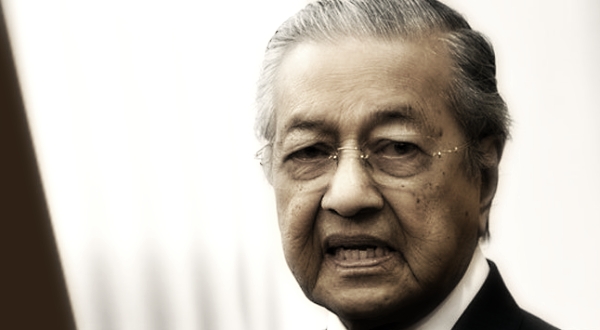EAC: will it actually work?

Whichever way we look at it, EAC is no more than just another government council made up of a team of seniors who are mostly in their late 60s and up.
Tay Tian Yan, Sin Chew Daily
The Economic Action Council has been set up, and the prime minister himself will chair the council.
Theoretically, this should be a great news.
With the economy heading further south and the rakyat grumbling unceasingly, the government has failed to come up with some effective measures to fix the economy.
One of the reasons for the establishment of EAC, as advisor in the Prime Minister’s Office Kadir Jasin has said, is because the current administration’s machinery, especially the cabinet, has been unable to handle issues related to economy, finance and welfare of the people.
Kadir has said, “The reality is that after eight months governing the country, the Pakatan Harapan administration has not produced any tangible results for the public.
“Many Malaysians are getting disappointed with the government’s performance, including cabinet ministers and civil servants… many know that the PM himself is not happy or satisfied with the performance of cabinet ministers.
“Every time he meets the people and reporters, he is constantly asked on the incompetence of the ministers, ministers who rarely go to the ground, or those who aren’t truthful about their personal matters,” he went on.
Unlike many others who are still enjoying their honeymoons after eight whole months, Kadir speaks his mind despite the fact he is one of the members of the administrative team.
The administrative team is incapable of solving problems, and Malaysians cannot afford to keep waiting or see the economy slide further.
Setting up the EAC now couldn’t have been more timely!
But, after seeing the line-up, the public and the corporate sector in particular have been largely uninspired.
Among the council’s 16 members, more than two-thirds are sitting cabinet members and leaders of statutory institutions and GLCs, with the remaining third making up of a few veterans, NGO reps and a couple of professionals.
Whichever way we look at it, EAC is no more than just another government council made up of a team of seniors who are mostly in their late 60s and up.
I have nothing against seniors, but this council does need a little more youthfulness, creativity and momentum.
Although a person’s age and background should not be the decisive factor, the council needs to have a stronger representation to reflect the actual socioeconomic fabric and needs of the Malaysian community.
The corporate sector is the pillar of the economy of any capitalist society, and businessmen are the ones who feel most of the current economic doldrums.
Save for banker Tay Ah Lek, we almost don’t see another representative from the business.
Economic scholars and financial experts should be the ones most familiar with our economic problems, but there is only one in the list: Prof Jomo Kwame Sundaram.
That’s not all. to a very large extent, Malaysia’s economy is now facing the issues of structural transformation, global connectivity, and integration of technology such as digital economy, automation and AI, among others.
People in these brand new areas must have professional knowledge and creativity and they are mostly below 40 or even 30 years of age, not sexagenarians.
Malaysians hope that Mahathir’s EAC will work, but for this to become possible, the PM himself needs to have a new mindset.

